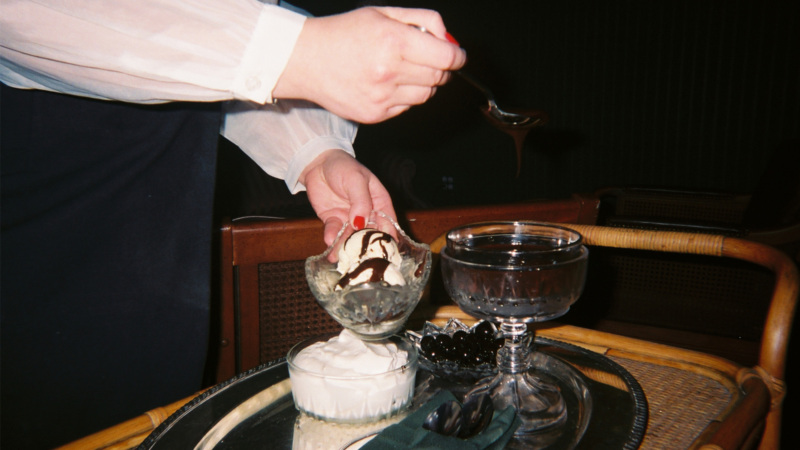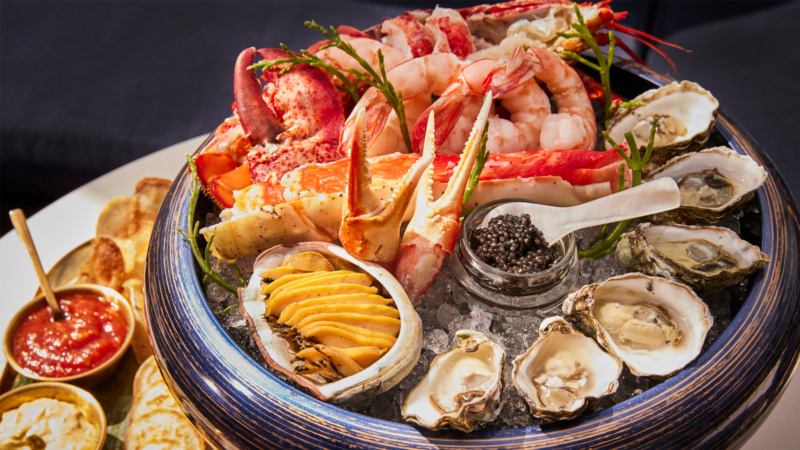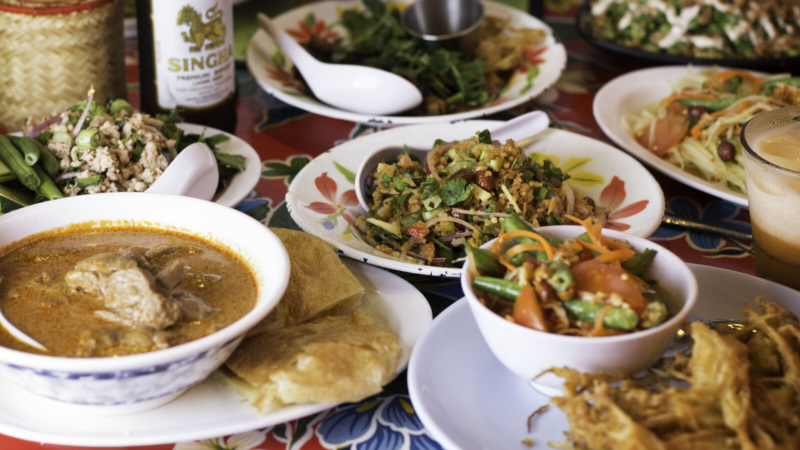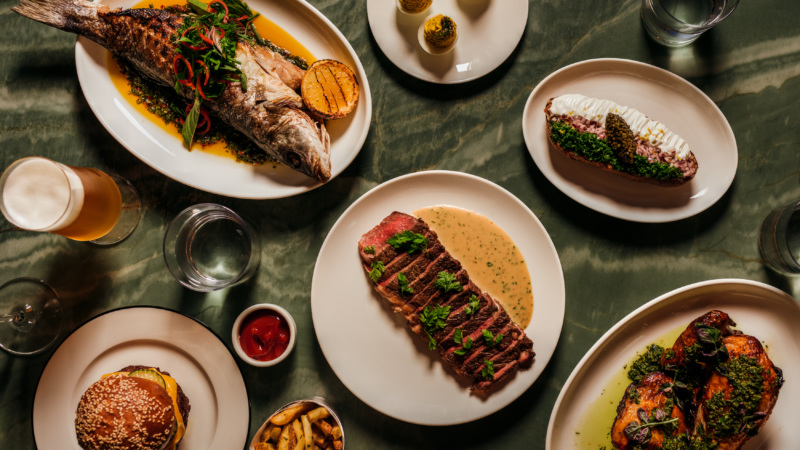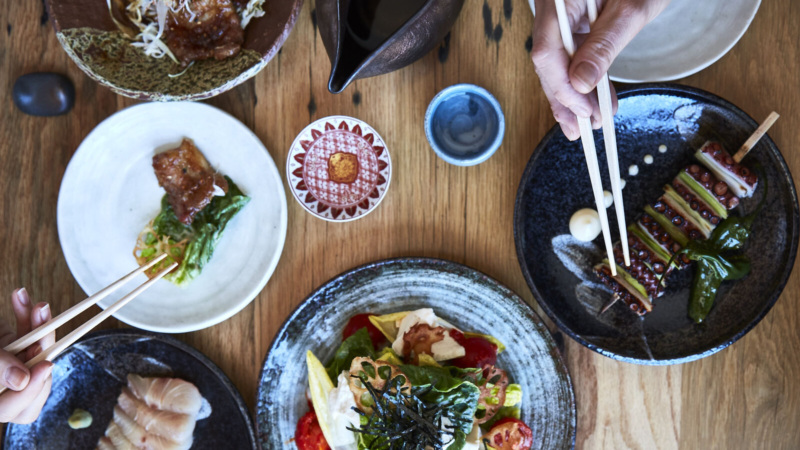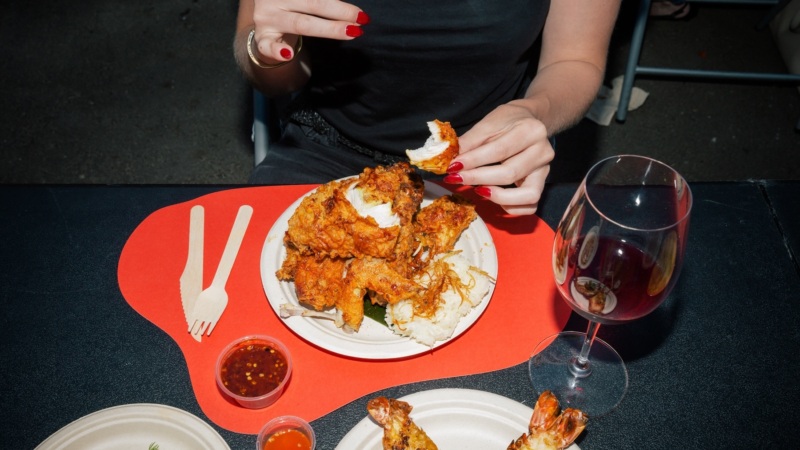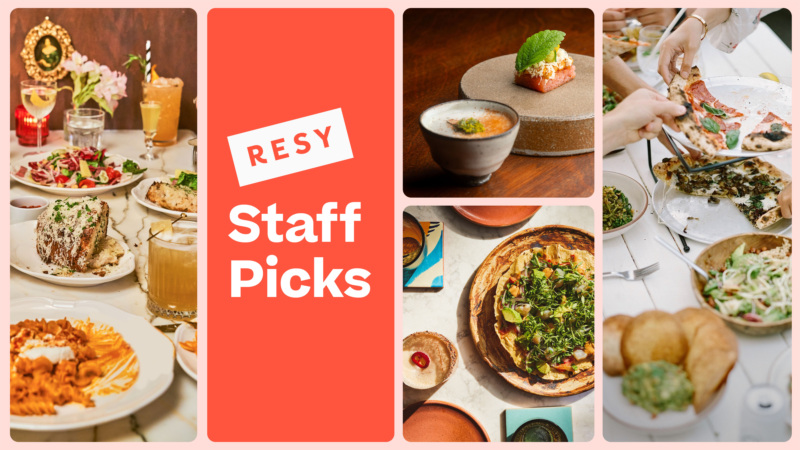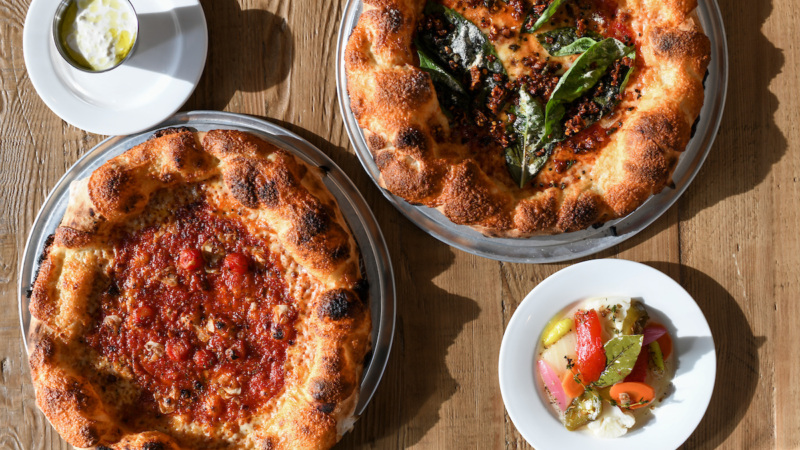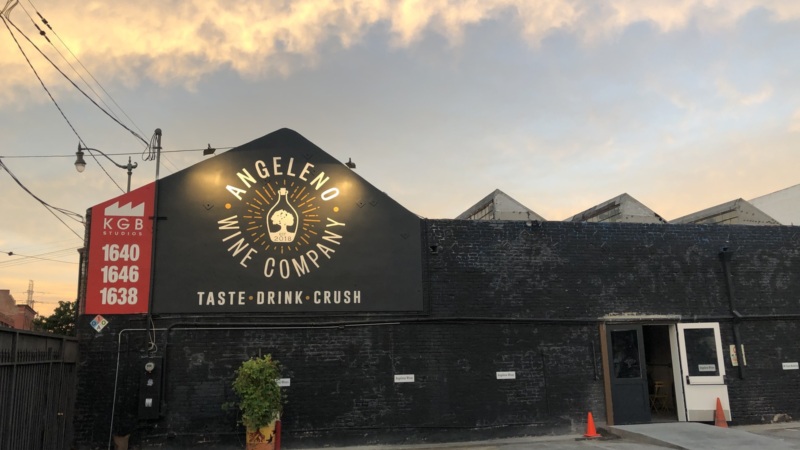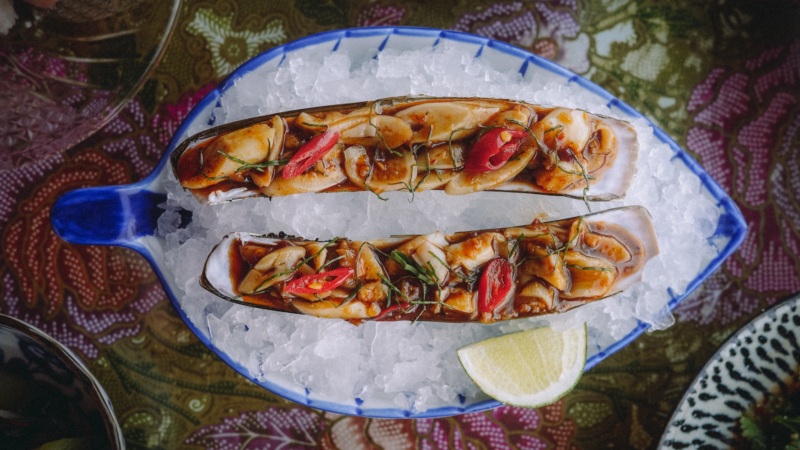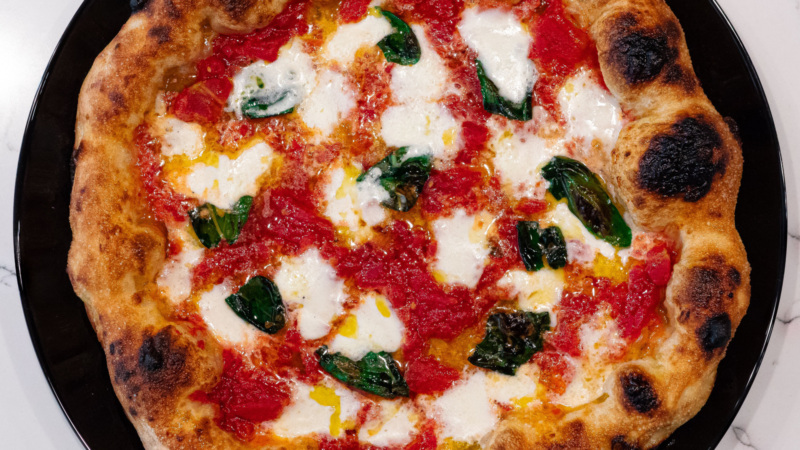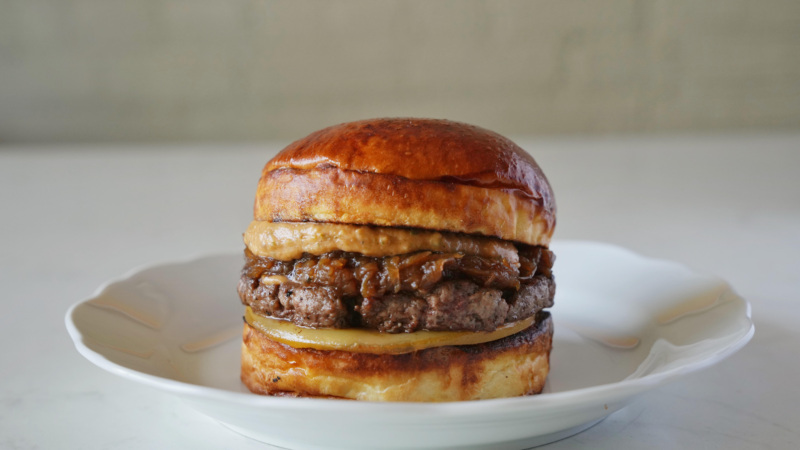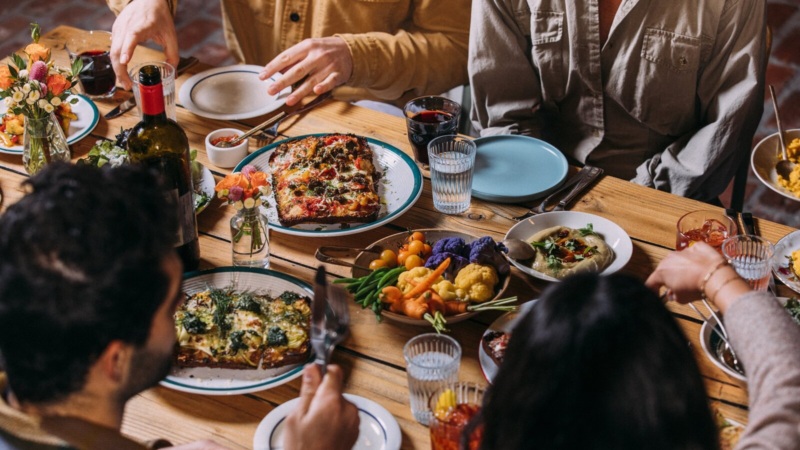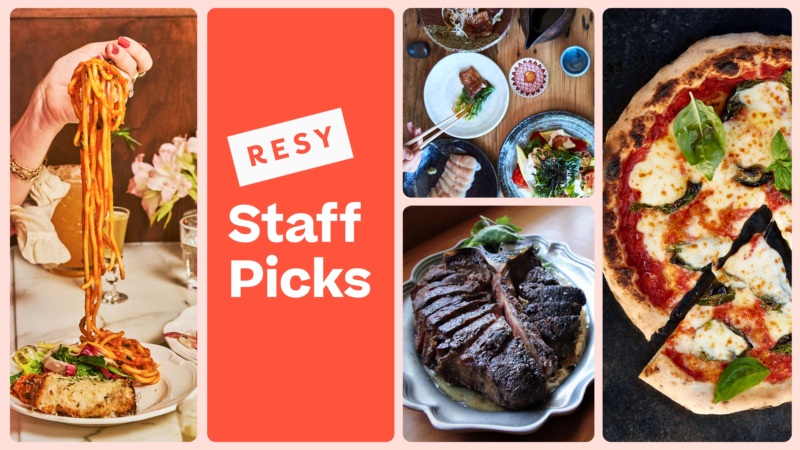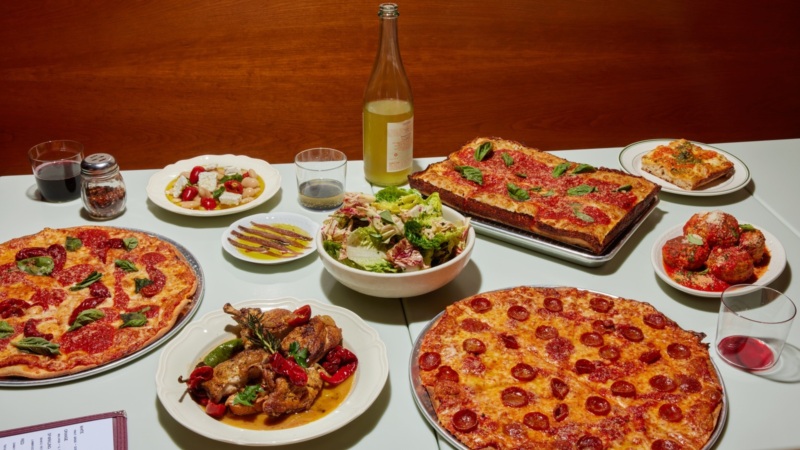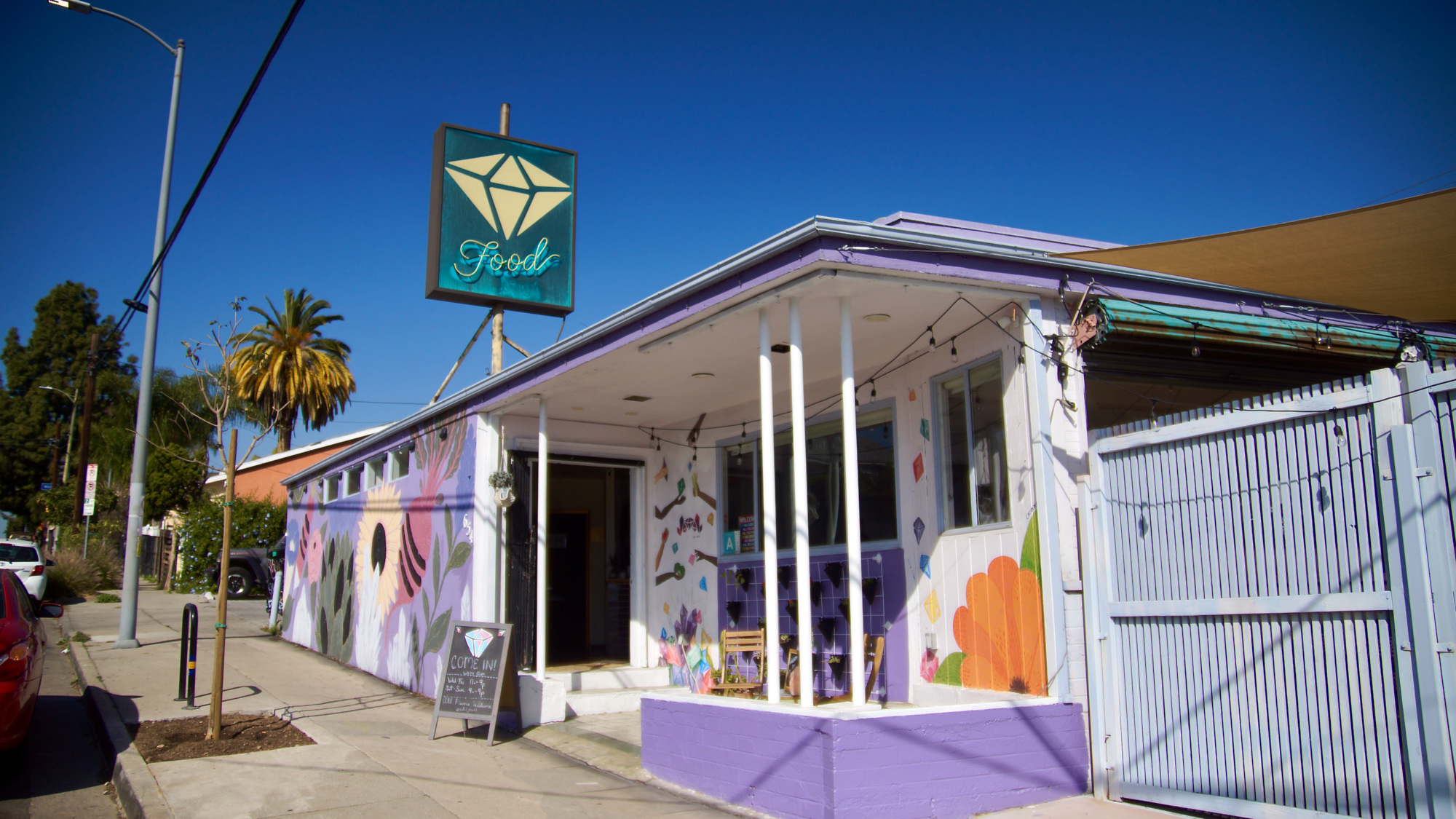
What To Expect at Jewel, Virgil Village’s Plant-Based Gem
Before you go to a restaurant, what do you want — or need — to know most? In our series, The Rundown, we’re sharing all the essentials about newly opened (as well as some of your favorite) restaurants.
The motivation for Sharky McGee to open a restaurant was simple: she was searching for a plant-based menu she actually wanted to eat. “Anyone can buy a piece of steak and put it on the grill and charge $150,” she says. “But creating unique plant-based dishes that are accessible and pleasing to the palate takes a lot more skill.” And so, in 2018, McGee opened the pint-sized Jewel, tucked away on a quiet street at the intersection of Silver Lake and Virgil Village.
A seasoned manager with stints at Pastis and Spice Market in New York, as well as Gjelina in Venice, McGee named her first solo venture after vegetables, which she considers “the jewels of the earth.” Born in the Philippines and raised eating meat at almost every meal, McGee, like most of her customers, is an omnivore, who just so happens to want creative, comforting plant-based food to improve individual health and reduce environmental impact.
Drawing from L.A.’s vast array of culinary influences, the bright, cheerful spot (you can’t miss its jacaranda-hued exterior, adorned with a sweeping botanical mural) recently expanded from daytime operations into dinner service, inside or out on the breezy patio. Here’s everything you need to know before you go.
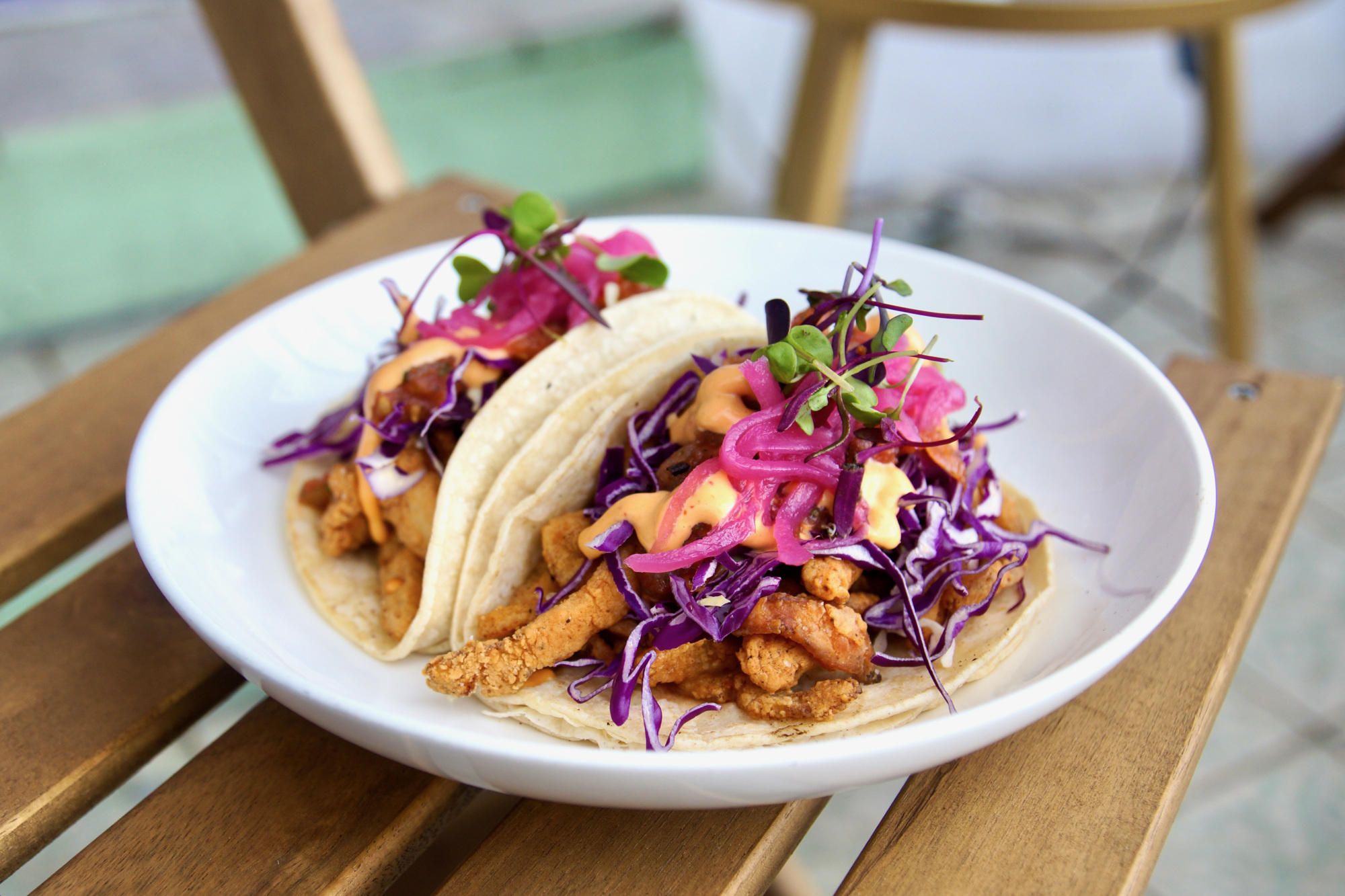
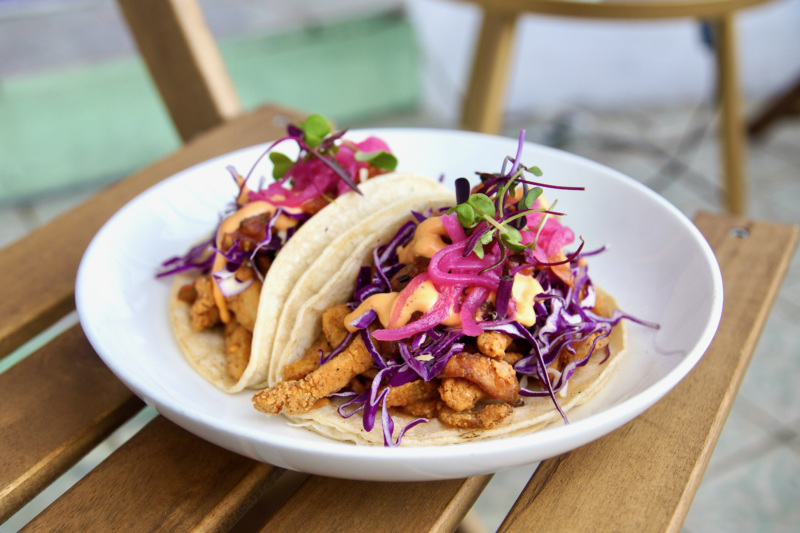
- A Local’s Guide to Eating Your Way Through Long Beach’s Incredible Cambodian Restaurants
- Everything You Need to Know About Gusto Green, LA’s New Hemp-Centric Destination
- The Resy Guide to the Best Outdoor Dining in Los Angeles
- Bolita’s Love Letter to Family, Cuba, and Virgil Village, in Five Cocktails
1. The “meat” switch-ups are inspired.
Jewel serves brunch, lunch, and dinner, and while the menu changes seasonally, there are a few signature dishes that always make an appearance. Carrot Lox Toast may sound simple, but it requires roasting, brining, and in-house smoking of the root vegetable, for starters. It’s finished with a gently fermented cashew cream cheese laced with dill, jalapeño, and lime, and served on an earthy slice of Bub & Grandma’s sourdough.
Cocomari Baja Tacos involve young Thai coconut meat that’s marinated, dredged, and fried into a filling you might mistake for calamari, punctuated with cabbage slaw and spicy crema. For old-fashioned comfort food, there’s a “Chicken” + Waffles, featuring a meaty fried oyster mushroom that mimics the texture of poultry, and a gluten-free waffle with both savory gravy and maple syrup.
For vegans, who might find it difficult to find animal product-free kimchi or gojuchang, Jewel makes both (for the latter, replacing high fructose corn syrup with maple syrup). Both are key to the Forbidden Fried Rice, a punchy dish with zucchini, kale, honshimeji mushrooms, and fried garlic; and the namesake Jewel Box, a macro bowl with greens, housemade kraut, and double-baked sweet potatoes caramelized with a turmeric and tamari marmalade.
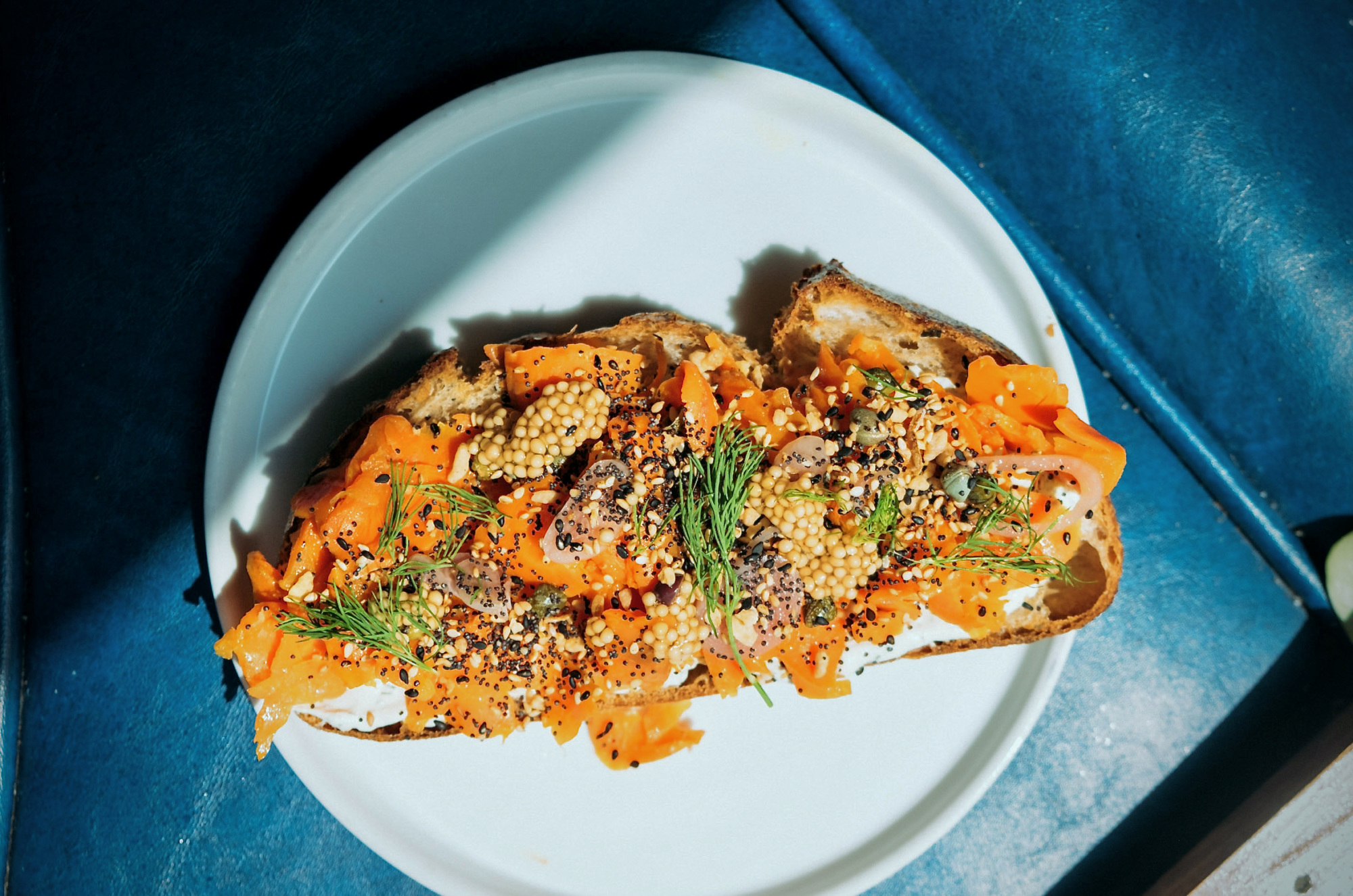
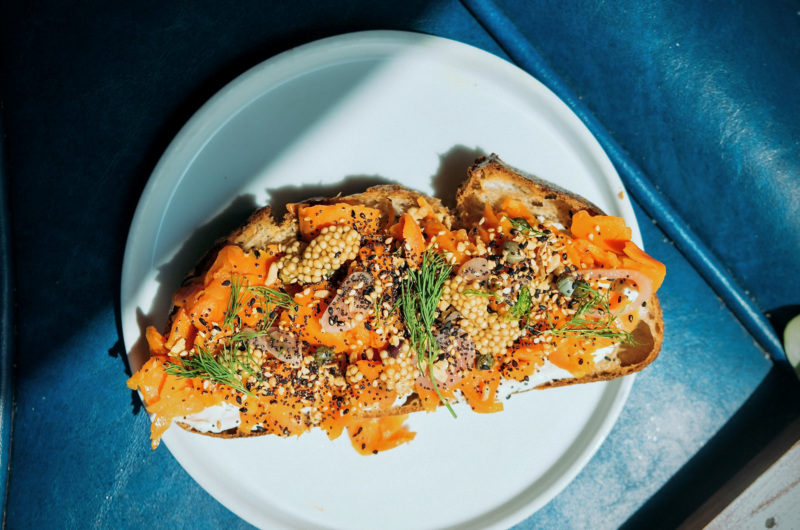
2. There’s a pop-up every Monday night.
What started as a pandemic pivot to offer emerging and out-of-work chefs space to cook and serve outdoors has evolved into a permanent weekly pop-up program. “During the pandemic these pop-ups were not only proof of people’s tenacity, but also a way to provide chefs doing amazing things a bigger platform,” McGee says.
While the pop-ups open the kitchen to meat and dairy, McGee says most guest chefs keep vegetarians in mind and use their time at Jewel to test and hone their vegetable-forward dishes. Recent visitors include Tiger & the Horse, purveyors of “punk AF” seasonal Taiwanese-inspired food; Biri Bibi, a mostly vegan take on Indian food from the southern city of Hyderabad; and a Mexican Italian mash-up, Amiga Amore, which is opening a Highland Park brick-and-mortar spot soon.
3. The drinks menu doesn’t skimp on quality (or quantity).
Last fall, Jewel kicked off their wine and beer program with a focus on sustainable or organic certified wines. “Natural wines have blown up over the last couple of years, and that aligns with our philosophy to use natural and organic products as much as possible,” says McGee.
In practice, that means less-commonly distributed Mexican wines like Casa Magoni Manaz from the Valle de Guadalupe in Baja California, as well as an abundance of California selections and sparkling varieties from Spain and Italy. (All wines are vegan, natch.) Beer and cider round out the alcoholic side of the menu, while zero-proof offerings include surprises like a hibiscus lemongrass lemonade and a rose charcoal tea.
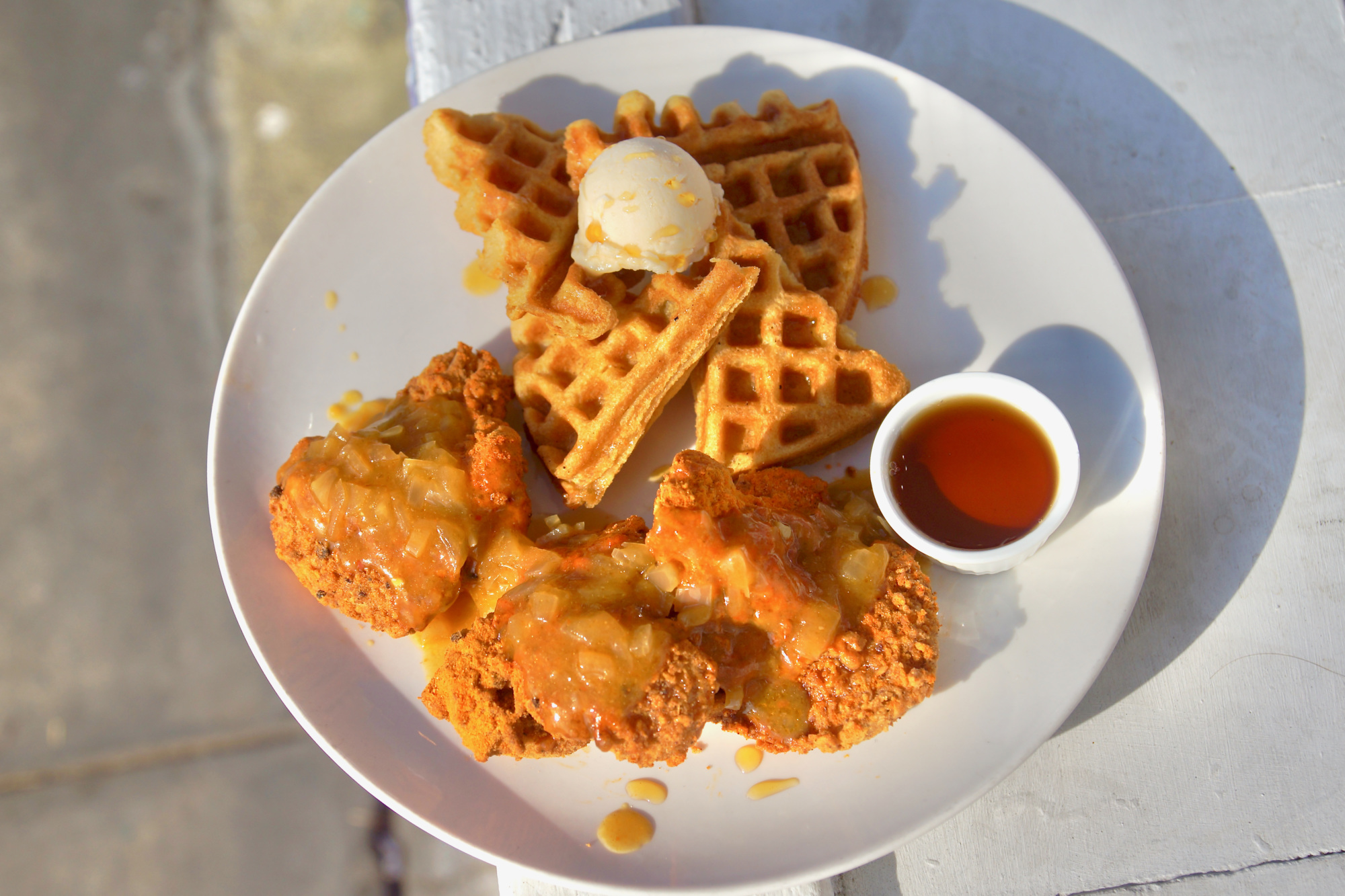
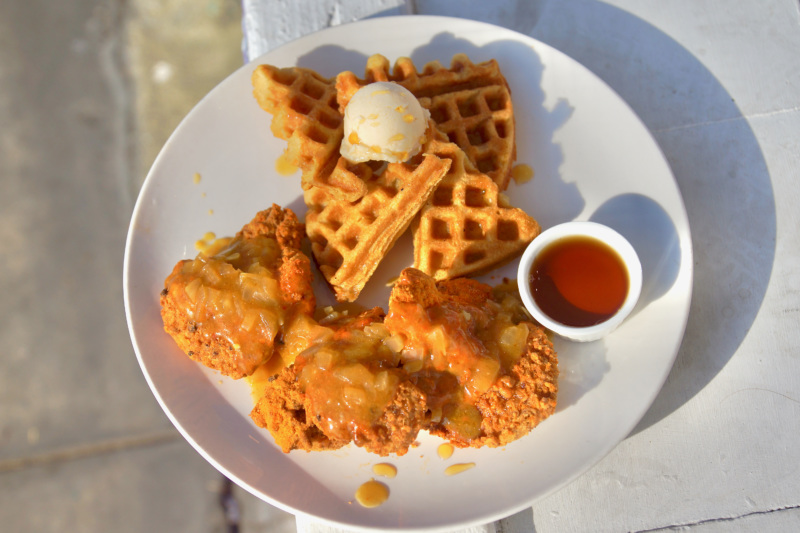
4. The community is the key to Jewel’s success.
McGee co-founded the restaurant with her wife, and Jewel quickly established itself as an inclusive, friendly neighborhood spot with the tagline: All Flavors Welcome. When McGee and her wife split up last year, the personal grief from the divorce compounded the already stressful circumstances of operating a restaurant during the pandemic.
“The lessons I’ve learned as a person and a small business owner have been part of my journey and the restaurant’s, too,” McGee says. “The support we’ve had in the last couple years has been very humbling. It also goes beyond the food. The community rallied behind us, knowing they are supporting a queer, POC-owned restaurant because they share our values and our philosophy.”
Stacie Stukin is Los Angeles-based arts and culture essayist and journalist who writes for, among others, Architectural Digest, Los Angeles Magazine, Vegetarian Times, and the Los Angeles Times. Follow her on Twitter and Instagram. Follow Resy, too.


